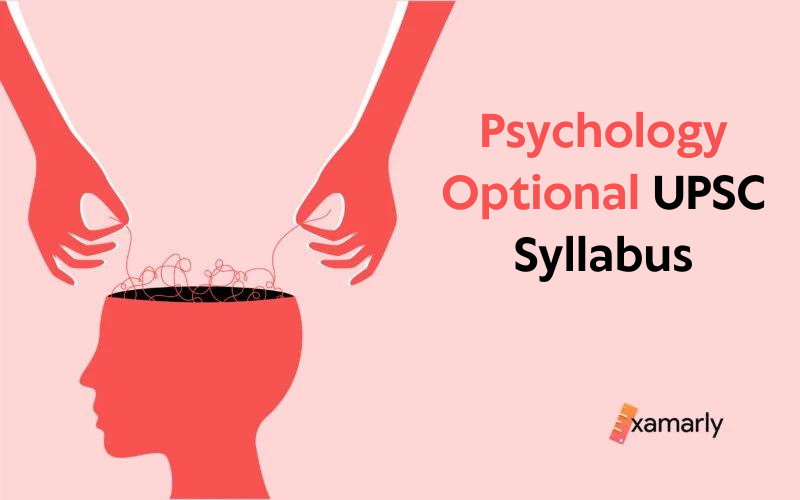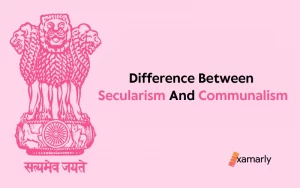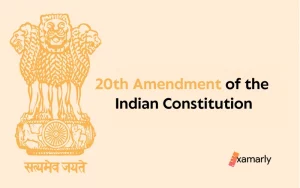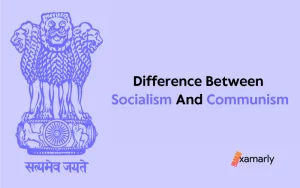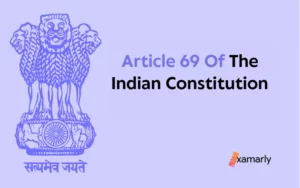Psychology is a subject that trains the human mind to study human behavior. It is a subject that can benefit a student in both their personal and professional life. It is a very interesting and straightforward subject. It is recommended to choose a subject that catches your interest. The syllabus for Psychology is relatively short and provides ample time for preparation.
Read the article further to explore the Psychology Optional UPSC syllabus set by the UPSC for UPSC Mains Exam. Also discover other queries related to it, like booklist, preparation tips, and so on.
- Psychology Optional UPSC Syllabus
- UPSC Psychology Exam Pattern
- Preparation Strategy
- UPSC Mains Psychology Optional Syllabus: Booklist
- Conclusion
- FAQs
- Is Psychology A Good Optional For UPSC?
- Who Can Take Psychology As an Optional in UPSC?
- What’s the best way to complete UPSC Psychology Syllabus on time?
- Do The UPSC Psychology Syllabus And The UPSC PrelimsSyllabus Have Any Similarities?
- Can One Prepare UPSC Psychology Syllabus Along With Their Graduation?
Psychology Optional UPSC Syllabus
UPSC Psychology Optional Syllabus Of Paper I
Foundations of Psychology
- Introduction : Definition of Psychology; Historical antecedents of Psychology and trends in the 21st centrury; Psychology and scientific methods; Psychology in relation to other social sciences and natural sciences; Application of Psychology to societal problems.
- Methods of Psychology : Types of research : Descriptive, evaluative, diagnostic and prognostic; Methods of Research : Survey, observation, case-study and experiments; Characteristics of experimental design and non-experimental designs; quasi-experimental designs; Focussed group discussions, brain storming, grounded theory approach.
- Research methods : Major steps in psychological research (problem statement, hypothesis formulation, research design, sampling, tools of data collection, analysis and interpretation and report writing); Fundamental versus applied research; Methods of data collection (interview, observation, questionnaire and case study). Research Designs (Ex-post facto and experimental). Application of statistical techniques (t-test, two-way ANOVA, correlation and regression and factor analysis) item response theory.
- Development of Human Behaviour: Growth and development; Principles of development, Role of genetic and environmental factors in determining human behaviour; Influence of cultural factors in socialization; Life span development—Characteristics, development tasks, promoting psychological well-being across major stages of the life span.
- Sensation, Attention and Perception : Sensation: concepts of threshold, absolute and difference thresholds, signal-detection and vigilance; Factors influencing attention including set. and characteristics of stimulus; Definition and concept of perception, biological factors in perception; Perceptual organization-influence of past experiences, perceptual defence-factor influencing space and depth perception, size estimation and perceptual readiness; The plasticity of perception; Extrasensory perception; Culture and perception, Subliminal erception.
- Learning : Concepts and theories of learning (Behaviourists, Gestaltalist, and Information processing models). The processes of extinction, discrimination and generalisation. Programmed learning, probability learning, self instructional learning, concepts, types and the schedules of reinforcement, escape, avoidance and punishment, modelling and social learning.
- Memory : Encoding and remembering; Shot-term memory, Long-term memory, Sensory memory, Iconic memory, Echoic memory: The Multistore model, levels of processing; Organization and Mnemonic techniques to improve memory; Theories of forgetting: decay, interference and retrieval failure: Metamemory; Amnesia: Anterograde and retrograde.
- Thinking and Problem Solving : Piaget’s theory of cognitive development; Concept formation processes; Information processing, Reasoning and problem solving, Facilitating and hindering factors in problem solving, Methods of problem solving: Creative thinking and fostering creativity; Factors influencing decision making and judgement; Recent trends.
- Motivation and Emotion : Psychological and physiological basis of motivation and emotion; Measurement of motivation and emotion; Effects of motivation and emotion on behaviour; Extrinsic and intrinsic motivation; Factors influencing intrinsic motivation; Emotional competence and the related issues.
- Intelligence and Aptitude : Concept of intelligence and aptitude, Nature and theories of intelligence-Spearman, Thurstone, Gulford Vernon, Sternberg and J.P. Das; Emotional Intelligence, Social intelligence, measurement of intelligence and aptitudes, concept of I Q deviation I Q, constancy of I Q; Measurement of multiple intelligence; Fluid intelligence and crystallized intelligence.
- Personality : Definition and concept of personality; Theories of personality (psychoanalytical, socio-cultural, interpersonal, developmental, humanistic, behaviouristic, trait and type approaches); Measurement of personality (projective tests, pencil-paper test); The Indian approach to personality; Training for personality development; Latest approaches like big 5 factor theory; The notion of self in different traditions.
- Attitudes, Values and Interests : Definitions of attitudes, values and interests; Components of attitudes; Formation and maintenance of attitudes. Measurement of attitudes, values and interests. Theories of attitude changes, strategies for fostering values. Formation of stereotypes and prejudices; Changing other’s behaviour, Theories of attribution; Recent trends.
- Language and Communication : Human language—Properties, structure and linguistic hierarchy, Language acquisition—predispotion, critical period hypothesis; Theories of Language development—Skinner and Chomsky; Process and types of communication—effective commu-nication training.
- Issues and Perspectives in Modern Contemporary Psychology : Computer application in the psychological laboratory and psychological testing; Artificial intelligence; Psychocybernetics; Study of consciousness sleep-wak schedules; dreams, stimulus deprivation, meditation, hypnotic/drug induced states; Extrasensory perception; Intersensory perception; Simulation studies.
UPSC Psychology Optional Syllabus Of Paper II
Psychology: Issues and applications
- Psychological Measurement of Individual Differences :
The nature of individual differences. Characteristics and construction of standardized psychological tests. Types of psychological tests. Use, misuse and limitation of psychological tests. Ethical issues in the use of psychological tests. - Psychological well being and Mental Disorders :
Concept of health-ill health positive health, well being casual factores in Mental disorders (Anxiety disorders, mood disorders; schizophrenia and delusional disorders; personality disorders, substance abuse disorders). Factors influencing positive health, well being; lifestyle and quality of life; Happiness disposition. - Therapeutic Approaches :
Psychodynamic therapies. Behaviour therapies. Client centered therapy. Cognitive therapies. Indigenous therapies (Yoga, Meditation). Biofeedback therapy. Prevention and rehabilitation of the mentally ill; Fostering mental health. - Work Psychology and Organisational Behaviour :
Personnel selection and training. Use of Psychological tests in the industry. Training and human resource development. Theories of work motivation. Herzberg, Maslow, Adam Equity theory, Porter and Lawler, Vroom; Leadership and participatory management; Advertising and marketing; Stress and its management; Ergonomics; consumer psychology; Managerial effectiveness; Transformational leadersip; Senitivity training; Power and politics in organizations. - Application of Psychology to Educational Field :
Psychological principles underlying effective teaching-learning process. Learning styles. Gifted, retarded, learning disabled and their training. Training for improving memory and better academic achievement. Personality development and value education. Educational, vocational guidance and Career counselling. Use of Psychological tests in educational institutions; Effective strategies in guidance programmes. - Community Psychology : Definition and concept of Community Psychology. Use of small groups in social action. Arousing Community consciousness and action for handling social problems. Group decision making and leadership for social change. Effective strategies for social change.
- Rehabilitation Psychology : Primary, secondary and tertiary prevention programmes—role of psychologists. Organising of services for rehabilitation of physically, mentally and socially challenged persons including old persons. Rehabilitation of persons suffering from substance abuse, juvenile delinquency, criminal behaviours. Rehabilitation of victims of violence. Rehabilitation of HIV/AIDS victims, the role of social agencies.
- Application of Psychology to disadvantaged groups : The concepts of disadvantaged, deprivation social, physical, cultural and economic consequences of disadvantaged and deprived groups. Educating and motivating the disadvantaged towards development; Relative and prolonged deprivation.
- Psychological problem of social integration : The concept of social integration. The problem of caste, class, religion and language conflicts and prejudice. Nature and manifestation of prejudice between the ingroup and outgroup. Casual factors of such conflicts and prejudices. Psychological strategies for handling the conflicts and prejudices. Measures to achieve social integration.
- Application of Psychology in Information Technology and Mass Media :
The present scenario of information technology and the mass media boom and the role of psychologists. Selection and training of Psychology professionals to work in the field of IT and mass media. Distance learning through IT and mass media. Entrepreneurship through e-commerce. Multilevel marketing. Impact of TV and fostering value through IT and mass media. Psychological consequences of recent developments in Information Technology. - Psychology and Economic development :
Achievement motivation and economic development. Characteristics of entrepreneurial behaviour. Motivating and Training people for entrepreneurship and economic development; Consumer rights and consumer awareness, Government policies for promotion of entrepreneurship among youth including women entreprenures. - Application of Psychology to environment and related fields :
Environmental Psychology effects of noise, pollution and crowding. Population Psychology : Psychological consequence of population explosion and high population density. Motivating for small family norms. Impact of rapid scientific and technological growth on degradation of environment. - Application of psychology in other fields :
- Military Psychology:
Devising psycological tests for defence personnel for use in selection, Training, counseling; training psychologists to work , with defence personnel in promoting positive health; Human engineering in defence. - Sports Psychology:
Psychological interventions in improving performance of athletes and sports. Persons participating in Individual and Team Games. - Media influences on pro and anti‐social behaviour.
- Psychology of Terrorism.
- Military Psychology:
- Psychology of Gender :
Issues of discrimination, Management of diversity; Glass ceiling effect, Self-fulfilling prophesy, Women and Indian society.
UPSC Psychology Exam Pattern
The scientific study of the mind and behavior is termed psychology. To prepare for this paper, one should know about the number of questions asked, time duration, etc.
Psychology comprises two papers: Paper-I and Paper-II. Both these papers carry 250 marks which will ultimately make the Psychology paper hold 500 marks in UPSC Mains. You will be given 3 hours to complete these papers.
To learn more about the UPSC Exam Pattern, check out the linked article.
Preparation Strategy
To prepare for Psychology Optional For UPSC, follow the tips discussed here, and make your own study schedule accordingly. With the right path, you can achieve your goal with ease.
General Tips
- For this optional, limit your reading to a handful of books that together cover roughly 95% of the curriculum. Avoid trying to read ten textbooks at once and being exhausted.
- If you’re studying psychology for the very first time, NCERTs are very crucial for this subject.
- Prior to your prelims exam, it is advised to at least once complete the entire psychological optional UPSC syllabus.
- It’s important to take care not to format your responses the same way you would in the GS papers. There are instances when the questions resemble GS questions, but you have to write like a pro for the optional ones. So practice beforehand, which will help you to write a better answer in the examination hall.
- The creation of connections between the syllabus’s themes is also crucial. For instance, you can write responses in Paper II using the memory, learning, intelligence, motivation, etc. that are present in Paper I. (which deals with applied psychology).
Paper-Wise Preparation Strategy
- Psychology Paper I is more of a theoretical paper.
- You must establish a solid foundation in Paper I because this will serve as the framework for your Paper II responses.
- Paper II is about applied psychology. This paper demands more work and skill in composing answers because it is more application-oriented.
- Create your solutions based on the psychological principles you learned in Paper I.
- Give numerous instances to back up your claims, and make sure to use a large number of Indian facts.
Tips To Score High
Let’s first look at the fundamentals of psychology study for the IAS test before moving on to the paper-wise optional plan. You should consider these five factors both when studying and when composing your responses. As follows:
- Candidates must understand the fundamental ideas of each topic on the psychology optional syllabus.
- Incorporating experimental investigations within your paper will provide a significant edge. These studies are an essential part of your preparation because they are of utmost significance to the area of psychology. The line between intuition and scientifically validated truths is thin in psychology because it is not a precise science. So, when preparing this component, exercise particular caution.
- To improve your score, be sure to provide examples from real-world situations.
- Making flowcharts would make it easier for you to comprehend the ideas.
- For the finest coverage of the whole UPSC Mains Psychology Optional Syllabus, take practice tests and work through questions from prior years.
UPSC Mains Psychology Optional Syllabus: Booklist
- Atkinson & Hilgard – Psychology
- Understanding Psychology by Robert S. Feldman
- Introduction to Psychology
- Theories of Personality
- Psychology – Classes XI & XII NCERT textbooks
- Psychology by Baron
- Social Psychology
- Tests, Measurements, and Research Methods in Behavioural Sciences by A K Singh
- Abnormal Psychology
- Psychology by Saundra Ciccarelli
- Munn’S Introduction To Psychology
- Applied Psychology by Smarak Swain
- Organizational Behavior
Conclusion
The first step in developing a plan for the UPSC Exam should be being familiar with the psychology optional subject. Candidates can build their base and improve their chances of scoring by knowing what areas to address first. The performance on the optional subject will have a significant impact on the final UPSC Exam score. In order to adequately prepare, candidates must comprehend each topic covered in the UPSC Psychology optional Syllabus.
FAQs
Is Psychology A Good Optional For UPSC?
Yes, it is a good optional subject if you have studied it in graduation/postgraduation, and also have a keen interest in it. Psychology is one of the most rational fields of study. It is based on research and practical applications, and it offers students a broad spectrum of topics. A solid understanding of the subject will benefit the answering process on the optional paper and help students to score higher marks. Psychology also develops critical thinking skills.
Who Can Take Psychology As an Optional in UPSC?
Anyone having Psychology in their graduation/postgraduation can opt for this paper. Also, he/she must have a keen interest otherwise they will not find it interesting after some time, and hence will affect their preparation.
What’s the best way to complete UPSC Psychology Syllabus on time?
The best way to prepare for the UPSC Psychology examination is to follow the syllabus carefully. Although this subject is both theory-based and application based, it will require a lot of research to be successful and a lot of answer-writing practice as well.
The Psychology optional UPSC Syllabus can be finished on time if a thorough study plan and effective time management are followed. The applicants would be prudent to get a head start on their preparation so that there is adequate time for revision.
Do The UPSC Psychology Syllabus And The UPSC PrelimsSyllabus Have Any Similarities?
No there is no similarity between the two as this subject is only a part of the Mains exam and has no role in the Prelims exam.
Can One Prepare UPSC Psychology Syllabus Along With Their Graduation?
The UPSC Psychology Syllabus is generally at the honours degree level—that is, at a level above a bachelor’s degree but below a master’s degree. So, yes one can cover the syllabus of Prelims simultaneously with their graduation.


